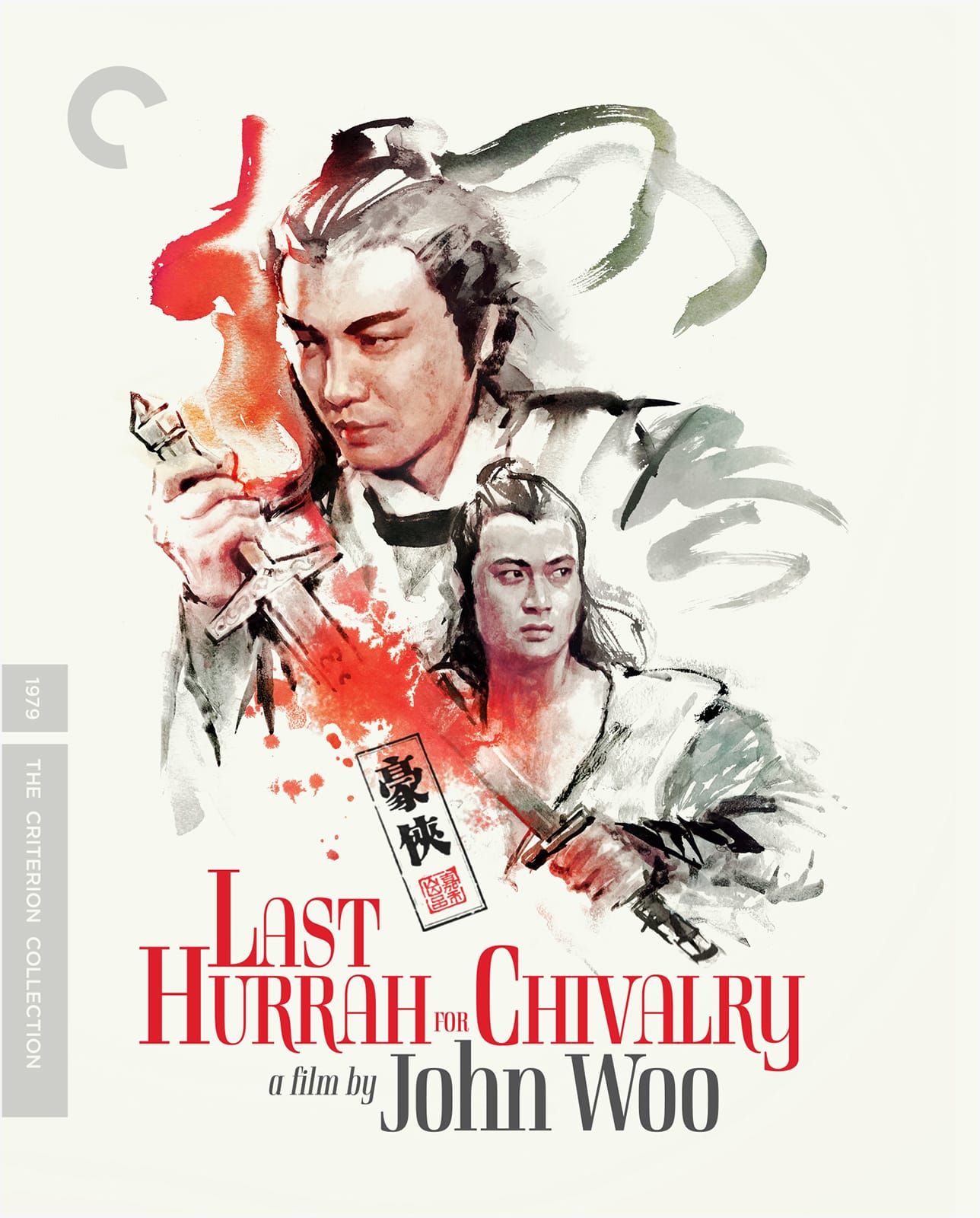It has been twenty-five years since Criterion released John Woo’s The Killer and Hard Boiled on DVD. While they elected not to release them on blu-ray (with them being put out in mediocre releases by Dragon Dynasty instead), Criterion FINALLY returns to the well of the great John Woo, this time going all the way back to 1979 with Woo’s wuxia ode to loyalty and brotherhood, Last Hurrah for Chivalry. I’m jazzed, folks! Are you jazzed? Let’s dig into this great film!
We open on a blissful wedding. The Scholarly Kao Pang is ready to wed his lovely bride when a crazed, evil kung fu master shows up and ruins everything by killing half the wedding party. In Kao’s quest for revenge, he hires the mercenary swordsman Chang San to track down and kill the kung fu master. To aid him in his quest, he also brings along a wandering drunkard named Tsing Yi (or just “Green Suit”, you know…whatev…) who happens to also be a master at martial arts. What follows is an action-packed, beautifully shot flurry of wonderfully choreographed fighting amidst a tale of honor, friendship, betrayal and death.
For those who don’t eat, sleep and breathe this stuff, you may not be aware that John Woo began his career during the heyday of the Hong Kong martial arts boom as a production assistant at the smaller Cathay Studio but soon working his way up to assistant director to Chang Cheh at the legendary Shaw Bros. Studio. Eventually Woo would be hired on as a contract director at Golden Harvest where he would immediately start to show a more daring cinematic approach to filmmaking within the Hong Kong studio system working primarily with comedies which were popular at the time. In 1979, after failing to get off the ground a remake of Jean-Pierre Melville’s Le Samourai, he decided to make a decidedly unfashionably wuxia, a style of film whose popularity was beginning to wane at the time in favor of those aforementioned comedies. This wuxia called Hao Xia, or Last Hurrah for Chivalry, would fuse Woo’s admiration for his former boss Chang Cheh with fresher filming techniques as well as influences from foreign directors such as Akira Kurosawa and Jean-Luc Godard.
Thematically, despite the historical fantasy setting, Last Hurrah for Chivalry falls very much in line with Woo’s notable “heroic bloodshed” films for which he would become known. Men who grow to become brothers in arms through a sense of brotherhood and loyalty are Woo’s bread & butter and in the ultimate sacrifice for the sake of friendship. Chivalry indeed. We see several stylistic touches that Woo would employ in later films. Duos locked in deadly battle back to back facing unreasonable odds. His classic use of slow motion. His appreciation of balletic violence. The only things missing are guns and doves. While the plot and themes of this film are certainly worth mentioning, the true draw of the film is the bravura action set pieces. The second half in particular is loaded with well-choreographed and inventive fight sequences. From the incredibly impressive sword fight with fight choreographer Fong Hak On to the cool cage fight, from the goofy Sleeping Buddha fight to the fire-breathing fight with the evil kung fu master, this film is just packed with martial arts goodness. Also while Woo does indeed pay homage to Chang Cheh, he also adds his own stylistic flourishes, keeping the camera moving and weaving through the fight scenes rather than staying totally static as many Shaw Bros. films did. Overall, this is an excellent film that I enjoyed a great deal. If I had any qualms with it, it’s with the silly attempts at humor that it felt like it needed to put in there occasionally that didn’t always feel organic to the plot. Plus that odd and cheesy frolic through a garden was a little weird as well.
On the technical side of things, we are dealing with Criterion here and they do certainly deliver the goods with a very crisp 2K restoration from the original camera negative that has a healthy amount of grain without appearing too clouded and the bright colors of the various costumes really pop. Fans of a more grindhouse style of scan with scratches and print damage will probably complain, but I can’t imagine anyone else being disappointed by this very nice transfer. We also get a nice 5.1 Surround audio mix with a clean separation that works very well during the many action scenes in particular. Extras are surprisingly a little on the light side for a Criterion release. First we have a 4-minute audio interview with John Woo talking about his inspirations and influences for Last Hurrah for Chivalry. It’s fine with some nice info but feels a little light. I would’ve like to have heard more from Woo (or really anyone) more about the production of the film itself. The disc also includes an 8-minute interview with author Grady Hendrix who I mostly know from his fun horror fiction like My Best Friend’s Exorcism and Paperbacks from Hell, his non-fiction book on the paperback horror boom of the ’70s and ’80s that he co-wrote with Will Erickson. But apparently Hendrix is also a big martial arts cinema buff and wrote the book These Fists Breaks Bricks on the kung fu action cinema explosion. It’s actually a pretty solid interview and Hendrix packs a lot of good info in a fairly short amount of time. Also included is a very good printed essay by Aaron Han Joon Magnan-Park that covers Woo’s early career, the themes of the film and its influence on Woo’s later work.
If you love a good wuxia film with stylish swordplay and want to see a master filmmaker’s early evolution of style and theme, Last Hurrah for Chivalry is an easy recommendation.

